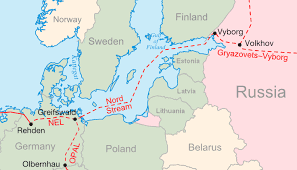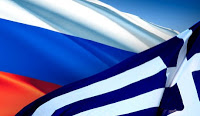By Brian Scheid & Nastassia Astrasheuskaya, S&P Global In a meeting with Russian Energy Minister Alexander Novak in Moscow, US Energy Secretary Rick Perry reiterated US opposition to the expansion of the Nord Stream pipeline from Russia, claiming it would hurt European allies and distort energy markets.
“We support our European institutions to lower their dependence on a single supplier,” Perry said in opening remarks Thursday. “We oppose Nord Stream 2, which would concentrate two-thirds of the imports of Russian gas in a single [route], creating a choke point [vulnerable to] disruption.”
During the meeting, Novak and Perry discussed a collaborative effort between Russia and the US to “ensure world energy market stability, transparency, and sustainability,” according to a statement Thursday from Shaylyn Hynes, a DOE spokeswoman.
During the meeting, Perry “made clear that while the United States welcomes competition with Russia in energy markets across Europe, Asia and elsewhere, Moscow can no longer use energy as an economic weapon,” Hynes said.
Novak said that Russia shared the view that “energy should not be a pressure tool.”
“Russian-US relations are not going though their best times at the moment,” Novak said Thursday. “But at the same time, our countries are leading energy powers, which guarantee global security. It is only through mutual efforts that we will be able to satisfy growing energy demand in the world.”
Novak stressed Thursday that the project was being pushed by companies from France, the Netherlands and Germany as well as Russia.
“It’s an international project, large-scale project that will serve for many decades ahead to ensure Europe’s energy needs are satisfied,” Novak said. “We hope a reasonable approach will prevail, and the project implementation will continue.”
The meetings come as the US Congress and the Trump administration consider new sanctions on Russia, including potential sanctions of Russia’s energy sector.
Perry told reporters Thursday that further energy sector sanctions on Russia were “possible,” but “not where we want to go.”
Novak said he was “concerned” about potential sanctions on a pipeline project he said was “completely competitive, which the European consumers are interested in.” He said that new pipeline infrastructure is “aimed at protecting consumer rights.”
President Donald Trump on Wednesday signed an executive order that would trigger sanctions, including sanctions in the energy sector, on a foreign government found to have interfered with a US election. But analysts view Trump’s order as having little impact since the imposition of sanctions would be discretionary.
“It strikes me as a press release rather than a change in policy,” Daleep Singh, a former US Treasury assistant secretary now with the Atlantic Council, said during a Senate Banking Committee hearing Wednesday.
In July, Senator John Barrasso, a Wyoming Republican and chairman of the Senate Environment and Public Works Committee, introduced a bill that would impose mandatory sanctions on Russia’s Nord Stream 2 pipeline.
The pipeline expansion will double the system to 110 Bcm a year. Nord Stream 2 is opposed by the European Commission, the US and much of Eastern Europe on the grounds that it increases Europe’s dependence on one import route.
Perry and Novak last met in Washington just over two months ago.
“We have our disagreements, we have our challenges,” Perry said Thursday. “But dialogue is very, very important to these two countries. Particularly when we find ourselves as leading oil and gas producing countries of the world.” —



















